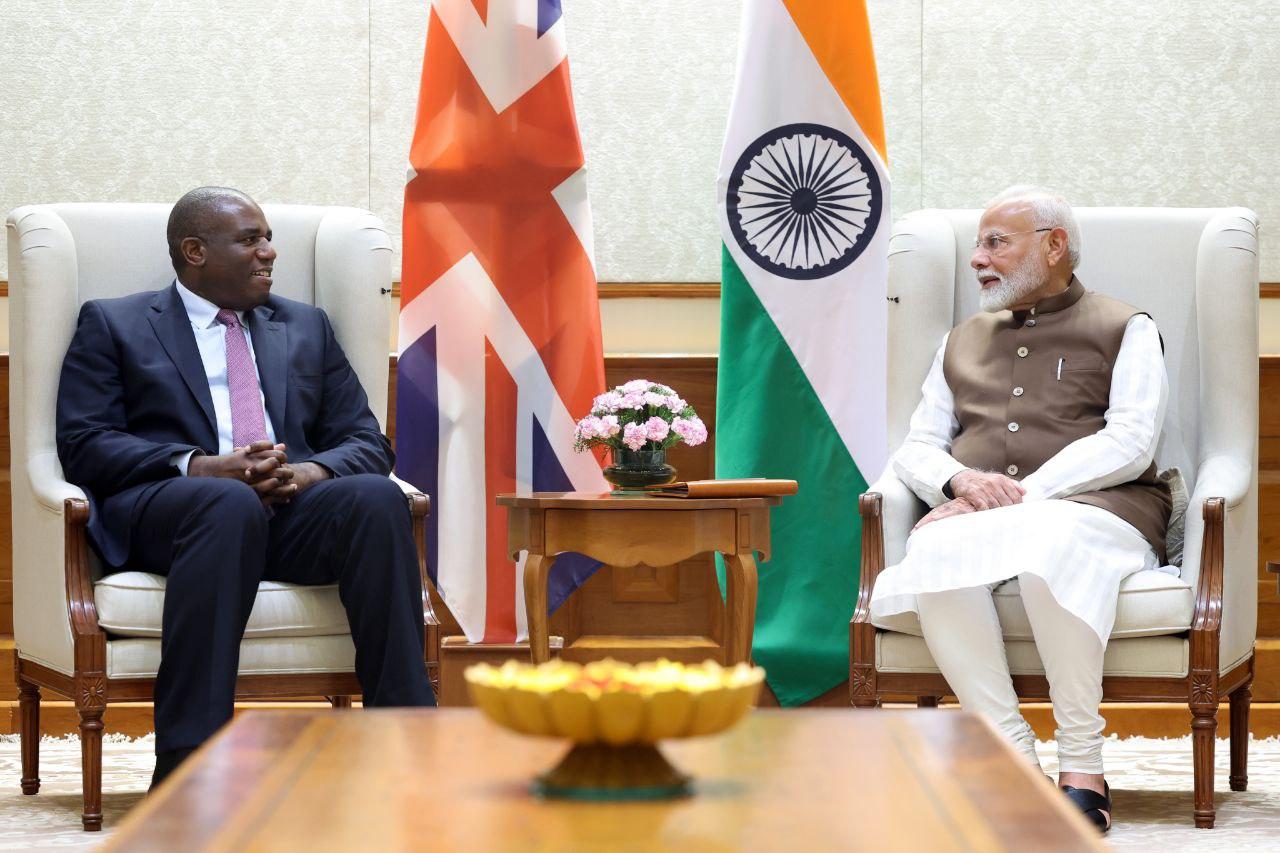
After three long years and 14 intense rounds of negotiations, the long-awaited moment has arrived—India and the United Kingdom have officially signed a historic Free Trade Agreement (FTA). This isn’t just a trade pact; it’s a geopolitical statement. While the agreement strengthens bilateral ties, it also sends a strong message to global powers like the United States, which have previously tried to force trade talks under pressure and artificial deadlines.
The Deal is Signed: Modi’s UK Visit Yields Major Breakthrough
Prime Minister Narendra Modi’s ongoing visit to the UK has already delivered its most significant outcome—formal signing of a comprehensive Free Trade Agreement between India and Britain. This deal marks the culmination of nearly three years of complex diplomacy, stretching across multiple British prime ministers, including Boris Johnson, Liz Truss, and Rishi Sunak. Despite changing leadership in the UK, India remained firm and patient, using strategic diplomacy to secure its interests.
What India Gains from the UK Trade Deal
This FTA is a major win for Indian exporters and professionals:
Zero duty on 99% of Indian products entering the UK market will make Indian goods significantly more competitive, boosting exports and "Make in India" initiatives.
Short-term visas for skilled professionals including IT experts, yoga instructors, and architects, opening new opportunities in the UK job market.
Indian workers in the UK will no longer need to contribute to the British pension system, leading to an estimated saving of around ₹4,000 crore annually.
The deal is expected to generate over 5 million jobs, boosting employment and manufacturing across India.
UK’s Post-Brexit Economic Strategy Gets a Major Push
For the UK, this agreement is no less significant. With Brexit changing Britain’s economic landscape, the country has been aggressively seeking strong bilateral deals to offset EU trade losses. The India-UK FTA will:
Add approximately £4.8 billion annually to the UK’s GDP.
Provide better access for British alcohol, automobiles, and high-end products to Indian markets.
Enable the UK to tap into India’s rapid economic growth and vast consumer base.
Be seen as Britain’s biggest post-Brexit trade agreement, according to Prime Minister Keir Starmer.
A Strategic Blow to the US Trade Approach
Beyond the India-UK dynamic, this agreement also highlights India’s changing stance on international trade diplomacy—particularly with regard to the United States. Under President Donald Trump’s second term, Washington had been pressuring India to agree to a trade deal by deadlines like July 9 and July 31. However, India resisted, rejecting the idea of negotiating under threat.
Commerce Minister Piyush Goyal made it clear: India will negotiate through diplomacy, not deadlines. India even suspended the Standard Operating Procedure (SOP) typically followed during trade negotiations—a 60-page protocol that outlines which sectors will be discussed and how. This move signaled a flexible, reciprocal approach: “We will act based on how you act,” was India’s message to the US.
India’s decision was also rooted in protecting its domestic interests. For example:
Allowing cheap Brazilian sugar under a US deal would have hurt Indian farmers.
Synthetic rubber imports could have devastated Kerala and South India’s natural rubber industries.
India’s Assertive New Trade Posture
This FTA with the UK sets a powerful precedent. India has shown that it will no longer succumb to international pressure, regardless of the power or prestige of its negotiating partner. Instead, it will prioritize its national interest, pursue deals with dignity, and engage based on mutual respect—not coercion.
This new trade diplomacy model—no more pressure tactics, only strategic patience—has now been demonstrated on the global stage. The UK deal is a blueprint of India’s future economic partnerships: strategic, sovereign, and self-assured.
Conclusion
This is not just a trade agreement—it is a diplomatic milestone. The India-UK Free Trade Agreement not only strengthens economic ties but also redefines India’s global posture. It marks the beginning of a new chapter of friendship with Britain and a strong message to countries like the United States: India is ready to deal, but only on equal terms.




